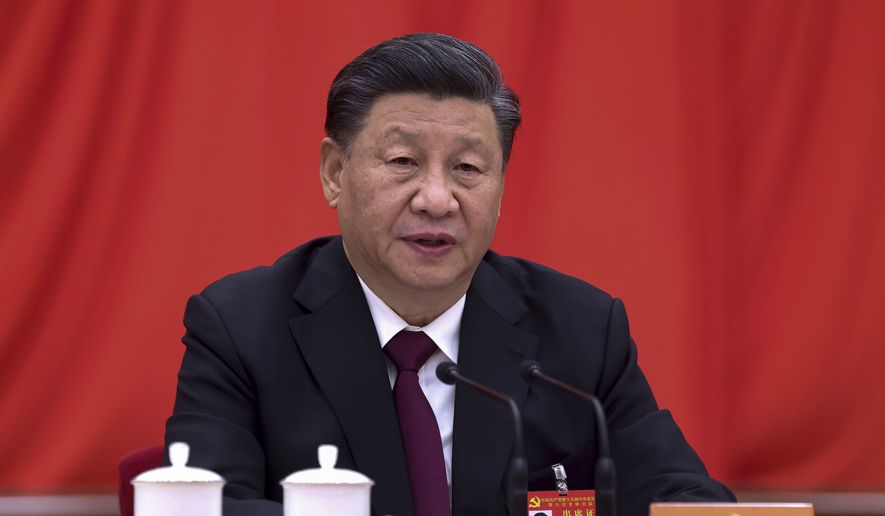President Biden and Chinese counterpart Xi Jinping will participate in an online gathering with Pacific Rim leaders on Saturday and are then planning to hold a one-on-one virtual summit early next week.
While the White House has yet to announce the Xi summit, sources told Reuters news agency on Thursday that it is expected to occur on Monday.
The White House did not immediately comment.
The talk between the two leaders will coincide with U.S.-Chinese tension on trade, human rights and Beijing’s military muscle-flexing toward Taiwan. But it also comes as Washington and Beijing collaborated this week on a joint climate pledge at the ongoing U.N. conference in Glasgow, Scotland, and as Mr. Xi and U.S. National Security Adviser Jake Sullivan said in separate remarks that neither side is seeking an Asian “cold war” as the U.S. and its allies adjust to China’s rise on the global scene.
Monday’s summit will mark the first direct talks between Mr. Biden and Mr. Xi since the two spoke via in early September. Mr. Biden met multiple times with Mr. Xi when he served as vice president in the Obama administration.
It will also coincide with growing concern in Washington over China’s expanding nuclear weapons arsenal. The Pentagon warned last week that Beijing could have 700 deliverable nuclear weapons by 2027 and 1,000 nuclear warheads by 2030.
China’s expanding military capabilities have triggered fears of a widening cold war between Washington and Beijing, but Mr. Xi has sought to downplay that narrative. He made headlines Thursday in remarks on the sidelines of the Asia-Pacific Economic Cooperation (APEC) forum arguing that tensions in the region should not be allowed to cause a relapse into a cold war mentality.
Mr. Xi, who heads China’s ruling Communist Party, said attempts to draw boundaries in the region along ideological or geopolitical lines will fail.
Mr. Xi pushed that message in a prerecorded video to a CEO Summit at APEC, which is being hosted by New Zealand in a virtual format. Mr. Xi and Mr. Biden are scheduled to participate in an online meeting with other Pacific Rim leaders on Saturday as part of the summit.
The Cold War talk has escalated after China harshly criticized the recent announcement by the U.S., Britain and Australia — three like-minded democracies — of a new Asia-Pacific focused security alliance, which would see Australia build nuclear submarines in what analysts say is a clear move to check China’s growing military and economic influence.
In a separate development on Thursday, leaders of China’s Communist Party approved a new political history elevating Mr. Xi’s status and calling his ideology the “essence of Chinese culture.” The move is widely seen as a harbinger of a move to cement the president’s power. He is seeking a precedent-breaking third five-year term in office when his current term ends in 2023.
Mr. Xi has amassed more personal authority than any other Chinese leader since at least Deng Xiaoping in the 1980s. Thursday’s resolution was only the third of its kind in China since the country’s founding 100 years ago, following one under Mao Zedong, the first leader of the communist government, and another under Mr. Deng, who launched reforms that turned China into a global economic power.
• This article is based in part on wire service reports.
• Guy Taylor can be reached at gtaylor@washingtontimes.com.




Please read our comment policy before commenting.